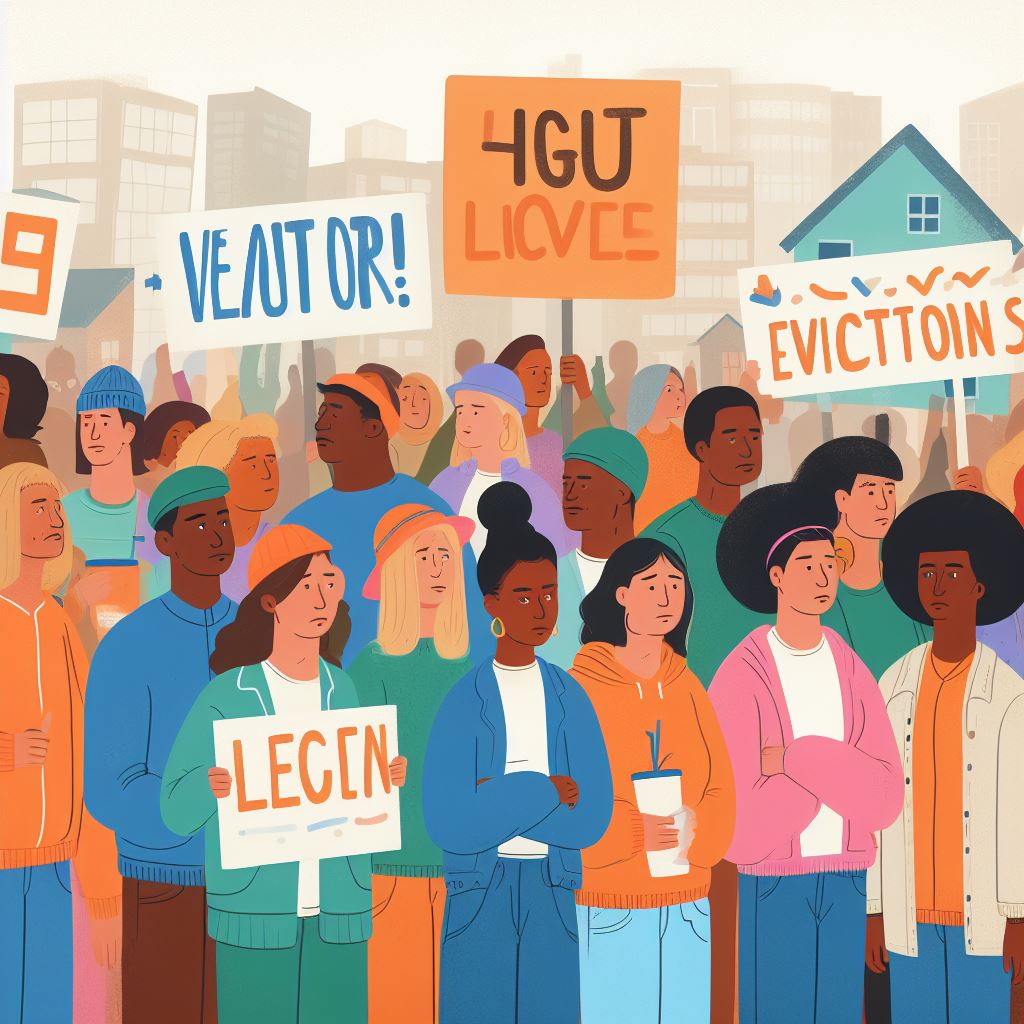Know Your Legal Protections in Subsidized Housing Evictions

Are you aware of your legal protections in subsidized housing evictions? Understanding your rights is crucial when faced with the possibility of eviction.
In this article, we will delve into the federal laws and regulations that govern subsidized housing evictions, as well as the tenant rights and protections available to you.
By familiarizing yourself with the eviction process in subsidized housing and accessing legal resources, you can navigate this challenging situation with confidence and ensure your rights are upheld.
Key Takeaways
- Understand the eviction process and tenant rights to protect against wrongful eviction.
- Consult an attorney or legal aid organization if your rights are being violated.
- Tenants have the right to a safe and habitable living environment.
- Familiarize yourself with the specific requirements set by the housing agency.
Understanding Subsidized Housing Evictions
Understanding Subsidized Housing Evictions can help you navigate the legal protections available in case you face the possibility of losing your subsidized housing. Evictions in subsidized housing occur when a tenant violates the terms of their lease agreement. Common reasons for eviction include non-payment of rent, damaging the property, or engaging in illegal activities. It’s important to understand the eviction process and your rights as a tenant to protect yourself from wrongful eviction.
When you receive an eviction notice, it’s crucial to act promptly. Read the notice carefully to understand the reasons for the eviction and the steps you can take to challenge it. Consult your lease agreement and familiarize yourself with the specific rules and regulations governing your subsidized housing. You may have the right to request a hearing to present your case and defend yourself against eviction.
It is also important to know that there are federal laws and regulations in place to protect tenants in subsidized housing. These laws provide certain rights and protections, such as the right to a reasonable accommodation for individuals with disabilities and the right to due process. Understanding these laws can help you advocate for yourself and ensure that your rights are upheld throughout the eviction process.
Federal Laws and Regulations
Do you know which federal laws and regulations protect tenants in subsidized housing? Understanding these legal protections is crucial for tenants facing eviction or other housing-related issues. The federal government has enacted several laws to safeguard the rights of individuals living in subsidized housing. Here are some key federal laws and regulations that you should be aware of:
| Law/Regulation | Description |
|---|---|
| Fair Housing Act | Prohibits discrimination based on race, color, religion, sex, national origin, disability, and familial status in housing. |
| Section 8 Housing Choice Voucher Program | Provides rental assistance to low-income individuals and families, ensuring they have access to safe and affordable housing. |
| Violence Against Women Act (VAWA) | Protects victims of domestic violence, dating violence, sexual assault, and stalking in subsidized housing. It prohibits eviction based on these circumstances. |
These federal laws and regulations play a crucial role in protecting tenants in subsidized housing from discrimination, eviction, and other forms of housing-related injustices. Familiarizing yourself with these laws can empower you to assert your rights and seek appropriate legal remedies if necessary. Remember, it’s important to consult an attorney or a legal aid organization if you believe your rights are being violated in subsidized housing.
Tenant Rights and Protections
To ensure you’re aware of your rights and protections as a tenant in subsidized housing, it’s important to understand the various tenant rights and legal safeguards in place. These rights and protections are designed to ensure that you’re treated fairly and that your housing needs are met.
One important tenant right is the right to a safe and habitable living environment. This means that your landlord is responsible for maintaining the property in a condition that’s safe and suitable for living. If there are any repairs or maintenance issues that need to be addressed, it’s your landlord’s responsibility to fix them in a timely manner.
Additionally, you have the right to be free from discrimination. Landlords aren’t allowed to refuse to rent to you or treat you differently based on factors such as your race, color, religion, sex, national origin, disability, or familial status. If you believe you have been a victim of discrimination, you have the right to file a complaint with the appropriate housing agency.
Furthermore, you have the right to privacy in your home. Your landlord can’t enter your unit without proper notice, except in emergency situations. They also can’t harass or intimidate you.
It is important to familiarize yourself with these rights and protections to ensure that you can assert them if necessary.
Eviction Process in Subsidized Housing
Your landlord’s ability to evict you from subsidized housing is subject to specific legal procedures and requirements. The eviction process in subsidized housing follows a similar framework to regular housing, but there are additional rules and protections in place.
Generally, your landlord must provide you with written notice of their intention to evict you, stating the reasons for the eviction and giving you a certain period of time to respond or rectify the situation. This notice must comply with the specific requirements set forth by the federal or state housing agency that oversees the subsidized housing program.
If you receive an eviction notice, it’s crucial to act promptly and seek legal advice to understand your rights and options. There may be resources available to help you fight the eviction, such as legal aid organizations or tenant advocacy groups.
Understanding the eviction process and being aware of your legal protections can greatly assist you in navigating potential eviction issues in subsidized housing.
Legal Resources for Tenants in Subsidized Housing
When facing eviction in subsidized housing, it’s important to know the legal resources available to you. These resources can help protect your rights and provide assistance throughout the eviction process.
One valuable resource is Legal Aid, which offers free or low-cost legal services to individuals who can’t afford an attorney. They can help you understand your rights, prepare for court hearings, and represent you in eviction proceedings.
Additionally, many cities have tenant advocacy organizations that provide information, resources, and support to tenants facing eviction. These organizations can offer guidance on understanding your lease, negotiating with your landlord, and asserting your rights.
It’s also worth exploring local tenant helplines or hotlines, which can provide advice and referrals to legal services.
Another option is to consult with a private attorney who specializes in housing law. They can provide tailored advice based on your specific circumstances and potentially represent you in court.
Remember to document all communication and interactions with your landlord, as this evidence can be crucial in defending your rights during the eviction process.
Frequently Asked Questions
Are There Any Penalties for Landlords Who Wrongfully Evict Tenants in Subsidized Housing?
If a landlord wrongfully evicts you in subsidized housing, there can be penalties. These penalties vary depending on the specific laws and regulations in your area. It’s important to know your rights and seek legal assistance if needed.
Can a Tenant Be Evicted From Subsidized Housing if They Have a Disability?
Yes, you can be evicted from subsidized housing if you have a disability. However, there are legal protections in place to prevent discrimination based on disability and ensure fair treatment.
What Options Are Available to Tenants Who Are Facing Eviction From Subsidized Housing?
Facing eviction from subsidized housing? You have options! Know your rights and protections. Seek legal assistance, communicate with your landlord, and explore potential resources for financial assistance or alternative housing arrangements.
Can a Tenant Be Evicted From Subsidized Housing if They Are Behind on Rent Payments?
Yes, you can be evicted from subsidized housing if you are behind on rent payments. It is important to know your legal protections in these situations to ensure you are aware of your rights.
Are There Any Specific Rights or Protections for Elderly Tenants in Subsidized Housing Facing Eviction?
Yes, there are specific rights and protections for elderly tenants in subsidized housing facing eviction. These include the right to notice, the right to a hearing, and the right to legal representation.



